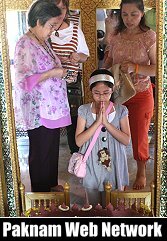What Does SW Mean on Social Media: Platform-Specific Acronyms
You might have noticed the acronym “SW” popping up across different social media platforms. Its meaning can shift dramatically based on where you find it. For instance, on TikTok, it's often tied to discussions about sex work, while in other spaces, it can mean "small world" or "So what?" This variation not only reflects the unique culture of each platform but also reveals the underlying dynamics at play. What might this mean for how we communicate online?
Understanding SW Across Different Platforms
When analyzing social media, it's important to recognize how the abbreviation "SW" varies across different platforms. On TikTok, "SW" primarily stands for "sex work," facilitating discussions about sex workers and their experiences within the framework of community guidelines. This usage has garnered approximately 4.5 billion views, indicating a growing conversation surrounding the rights and representation of sex workers.
Conversely, on other social media platforms, "SW" can signify different concepts, such as "small world" or "So What?"
This divergence in meaning highlights the varied language and communication styles prevalent across online platforms. The specific context in which acronyms are used reflects the differing cultural norms and constraints inherent to each social media environment, illustrating how language evolves in digital spaces to accommodate diverse audiences and topics.
The Role of Acronyms in Online Communication
Acronyms serve a significant function in online communication by condensing complex topics into simpler expressions that are often more easily understood within specific communities.
For instance, acronyms such as "SW" can facilitate discussions around sensitive social issues while minimizing the risk of censorship. This shorthand not only aids in clearer communication but also encourages more in-depth conversations about topics that may be stigmatized.
In addition, the use of acronyms can strengthen community ties by fostering connections and enhancing understanding among users. Their prevalence in viral content demonstrates their capability to stimulate discussion and elevate visibility for critical issues.
Thus, acronyms enable individuals to engage with and express important ideas while adhering to the guidelines set by various online platforms. Overall, acronyms play an essential role in enhancing discourse in digital environments.
SW in TikTok: Navigating Censorship
Navigating TikTok’s content policies presents significant challenges, particularly for discussions surrounding sex work, often abbreviated as "SW." The platform's algorithms frequently impose shadow bans on explicit terminology, leading users to adopt acronyms to engage in these discussions while minimizing the risk to their accounts.
The hashtag “SW” has generated approximately 4.5 billion views, indicating a notable interest in addressing and destigmatizing sex work.
Content creators on TikTok have developed various strategies to share their experiences and insights while complying with the platform’s regulations. As recent political developments ignite broader discussions about women's rights and sexual autonomy, it becomes increasingly important to recognize the role of SW discourse on TikTok.
Understanding this dynamic is crucial for those interested in promoting awareness and fostering informed conversations around the topic.
Shadow Banning and Its Impact on Content Visibility
Shadow banning can significantly impact content visibility on TikTok. When a creator's content is flagged by the platform’s algorithms, they may be subjected to shadow banning without their awareness. This situation can result in a substantial decrease in the reach of their posts and diminish user engagement.
Content that addresses sensitive topics, including those related to sexual wellness or similar issues, is particularly susceptible to this algorithmic response. Consequently, creators may experience a reduction in views and interactions, complicating their ability to assess their effectiveness and audience engagement.
To mitigate the risk of shadow banning, some creators choose to use euphemisms and acronyms in their discussions, aiming to stay within the platform's guidelines while still addressing important topics.
Understanding the mechanics of shadow banning is essential for creators to enhance their content visibility and effectively engage with their audience, particularly when dealing with sensitive subjects.
Increasing Conversations Around Sex Work Online
Discussions around sex work have traditionally faced significant stigma, but recent trends on social media platforms, particularly TikTok, indicate a shift towards more open dialogue on the topic. The use of the acronym "SW" is becoming more common, with content categorized under the #SW hashtag reportedly accumulating around 4.5 billion views.
This significant amount of engagement suggests an increasing interest in destigmatizing sex work and raising awareness regarding the rights and needs of sex workers.
Creators on TikTok employ various strategies to navigate the platform's content moderation policies while engaging in discussions about sex work, which often involves sensitive subjects. This adaptive approach highlights a growing demand for transparency in an industry that has been historically marginalized and frequently misunderstood.
As conversations around sex work gain traction, they contribute to a better understanding of the complexities involved, potentially fostering greater empathy among diverse audiences.
The increased visibility and discussion of these issues can lead to more informed debates regarding the rights and recognition of sex workers, underscoring the importance of addressing this topic in a responsible and informed manner.
TikTok’s Policies on Sensitive Content
As discussions surrounding sex work continue to develop on platforms like TikTok, creators encounter significant obstacles due to the app's stringent community guidelines regarding sensitive content. Posts that contain sexually explicit themes often face limited visibility, a phenomenon commonly referred to as shadow banning, even when they don't explicitly breach the platform's rules.
To address these challenges, many users have adopted the acronym "SW" to refer to sex work, which allows for necessary discussions while remaining within the bounds of community standards. However, producing informative content that complies with these guidelines is complex.
Creators must exercise caution to prevent account restrictions or reduced reach when engaging with sensitive subjects. This environment highlights the ongoing tension between freedom of expression and adherence to community guidelines in digital spaces.
The Community Aspect of SW Discussions
The discussions surrounding sex work (SW) on platforms like TikTok have gained significant traction in recent years, indicating a growing interest in the social dynamics and implications of this profession. The term "SW" serves as a unifying acronym, facilitating connections among sex workers and supporters, which can be crucial for advocacy and efforts aimed at reducing stigma associated with sex work.
With approximately 4.5 billion views on the SW hashtag, a wealth of narratives is available that highlight various perspectives, challenges, and experiences related to sex work. These shared stories can promote increased empathy and understanding among broader audiences, contributing to a more nuanced dialogue about sex work.
Additionally, users often employ creative methods of communication to navigate platform-specific censorship, enabling them to address the complexities of their experiences while raising awareness about the issues they face. This practice reflects a shift in societal attitudes towards sex work, as discussions become more visible and accessible.
Ultimately, the rise in SW-related conversations indicates a society that's more conscious of the issues at play, offering opportunities for community support and collective advocacy for sex workers' rights. This evolution in dialogue underscores the importance of fostering connections and understanding within and beyond the sex work community.
Broader Implications of Social Media Acronyms
Social media acronyms, such as "SW," serve to simplify discussions surrounding sensitive topics, including sex work, while also functioning as tools for advocacy and community engagement.
These acronyms enable users to navigate potential censorship on various platforms, facilitating more open dialogue about issues that have historically faced stigma. The increasing use of the "SW" hashtag reflects a significant demand for both awareness and support for sex work and related issues.
By fostering discussions that are more inclusive and accessible, social media platforms can play a role in altering perceptions of sex work. These conversations can contribute to a broader understanding of the complexities involved, helping to challenge stereotypes and promote social justice.
The engagement observed in content associated with such acronyms indicates that social media can act as a vital space for marginalized voices, including those of sex workers, to be heard and acknowledged in the context of evolving societal norms and political climates.
Conclusion
In conclusion, understanding what "SW" means on different social media platforms is crucial for navigating online conversations. Whether it’s about sex work on TikTok or something else entirely elsewhere, acronyms play a significant role in how we communicate. By grasping these nuances, you can engage more effectively in discussions and stay informed on sensitive topics. As social media evolves, so does our language—embracing this helps foster connections and advocate for important issues within our communities.

















